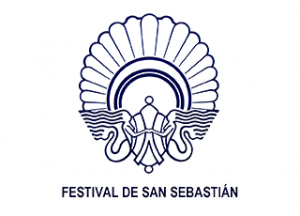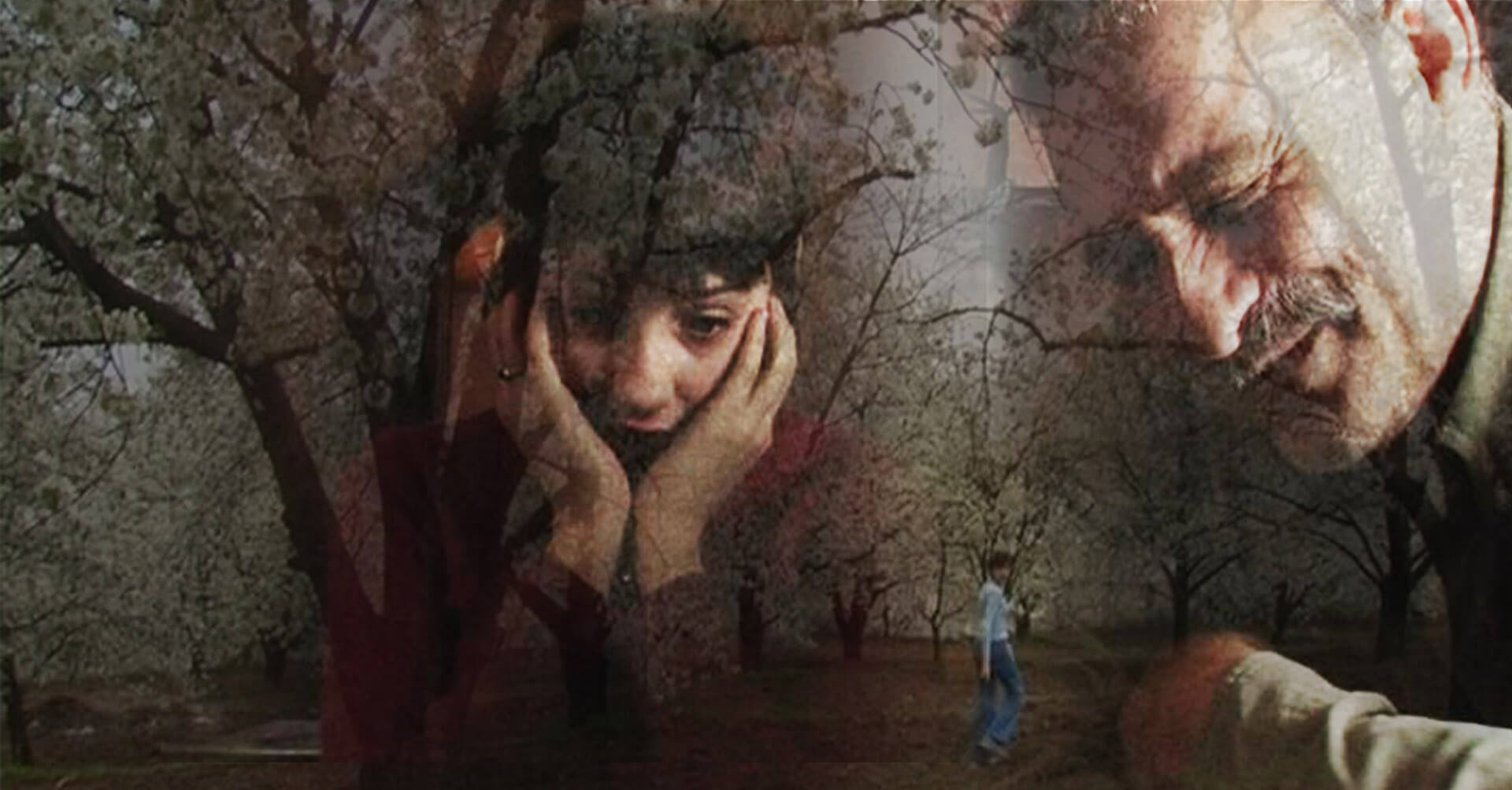Srpski kandidat za nagradu Oskar

Radnja filma opisuje Lazara, koji, posle deset godina provedenih u zatvoru, zatiče u svom stanu izbeglice iz BiH — samohranu majku Jasnu sa autističnom devojčicom Jovanom. Pošto je povratio svoju slobodu, on odlučuje da se oslobodi teškog tereta svoje prošlosti i da započne nov život u zemlji koja takođe okreće nov list u želji za boljom budućnošću.
Režija: Goran Paskaljević
Scenario: Filip David, Goran Paskaljević
Originalna priča: Goran Paskaljević
Muzika: Zoran Simjanović
Direktor fotografije: Milan Spasić
Montaža: Petar Putniković
Art direktor: Tijana Marić
Kostimi: Jelena Andjelković
Zvuk: Velibor Hajduković
Supervizor Zvuka: Branko Neškov C.A.S.
Producenti: Goran Paskaljević, Lazar Ristovski
Pomoćni producent: Jose Maria Morales
Uloge:
Lazar Ristovski – Lazar, Jasna Žalica – Jasna (Majka), Jovana Mitić – Jovana, Danica Ristovski – Direktor Centra Za Hendikepiranu Decu, Boda Ninković – Čovek Sa Ružom / Cvikeraš, Nenad Jezdić – Advokat / Kockasti, Lav Gersman – Beli Madjioničar, Erol Kadić – Trgovac Starim Gvoždjem, Ljiljana Jovanović – Milanova Majka, Fedja Stojanović – Komšija, Jovan Ristovski – Lazarov Brat, Vlasta Velisavljević – Pecaroš, Dušan Janićijević – Stari Izbeglica, Ana Puderka – Supruga Lazarovog Rodjaka, Azra Čengić – Žena U Taxiju, Ratko Miletić – Radnik.
Festivali i nagrade
2005 Posebna POHVALA žirija na 52.Internacionalnom festivalu u Puli
2005 Specijalna nagrada žirija na festivali ALPE ADRIA U TRSTU
2005 Nagrada za glumu na medjunarodnom filmskom festivalu u Minsku
2005 ZLATNI VITEZ na festivalu u Čeljabinsku
2005 Nagrada FIPRESCI
2005 Gran pri NAISA u Nišu za ulogu Lazara
2005 Nagrada FIPRESCI – domacih filmskih kriticara za najbolji film.
2005 Nešvil FF – Gran Pri – Dreammaker Award
2004 San Sebastijan Film Festival– Specijalna nagrada žirija
2004 Tromso Internacionalni Film Festival – FIPRESCI – Nagrada medjunarodne kritike
Press
A Midwinter Night’s Dream
Goran Paskaljevic’s heart-felt “A Midwinter Night’s Dream” draws a pessimistic picture of post-war Serbia, caught between the guilty nightmares of recent wars and the rise of ultra-nationalism. Yet, its brooding story of a veteran desperately attempting to connect emotionally with an autistic girl and her refugee mother makes it one of the director’s most powerful dramas. Lean, pared-down filming draws viewers in and the threat of imminent violence (not actually on-screen like in “The Powderkeg” aka “Cabaret Balkan””Cabaret Balkan”) keeps them. Festival kudos and critical support will be needed to overcome film’s tragic bleakness, however, and attract the distribution it deserves.
Using a real autistic girl (Jovana Mitic) in a central role, the film shows great sensitivity in exploring the autism and the uneasiness it causes in “normal””Normal” people. Here autism can be read as a metaphor for Serbia’s ills: people’s alienation from one another, their inability to grasp the meaning of their actions, their panicky fear of losing their identity. Paskaljevic’s anguish is that all attempts to wake up his countrymen seem futile.
Lazar (Lazar Ristovski, who co-produced the film) returns from 10 years in prison a silent, deeply wounded man. He discovers a strange woman, Jasna (Jasna Zalica), and her autistic teenage daughter, Jovana (Mitic), living in his apartment. They are Bosnian Serbs displaced in the war. Acknowledging his rights as owner, Jasna numbly agrees to move into an overcrowded refugee shelter but in a sudden rush of pity, Lazar lets them stay in his house.
As the trio slowly draws closer to each other, their individual dramas are revealed. Jovana’s father deserted the family when he realized his daughter was not a normal child. The mother brought her to Serbia in the mistaken hope of a better life. ”Još” Lazar’s anguish is equally great. In an eerie, very delicate scene, he goes to visit the aged mother of his best friend Milan and asks forgiveness for killing her son. His terrible pain surfaces again in an electrifying confession scene, when he describes to Jasna how he deserted the Serbian army after witnessing his company perform a gruesome atrocity in Bosnia; then he started drinking and killed Milan in a meaningless barroom brawl. Only after all the ghosts are out of the closet do Lazar and the woman become lovers. His great affection for Jovana helps the girl open up at the special education school she attends. She even takes part in a touching performance of Shakespeare’s “A Midsummer Night’s Dream.” She provides a kind of therapy for him, too, by giving him a way to temporarily regress into childlike innocence and come to terms with his feelings of guilt. Just when happiness seems within reach, an act of senseless violence shatters their future. As in “The Powderkeg,” the audience is meant to identify the origins of this violence — which would otherwise be an arbitrary plot twist — in the war and general political conditions. Conveying deep feelings in a whisper, Ristovski gives one of his finest perfs, a powerfully understated portrait of the nightmare-ridden veteran who seems to have no greater enemy than himself. In an unusual piece of casting, Zalica — who is actually a Bosnian Muslim — suggests a life of suffering and courage with reticence and a worried smile. The charming, sweet-faced Mitic becomes a credible character thanks to editor Petar Putnikovic’s careful selection of footage. As with Gianni Amelio’s use of young Andrea Rossi, a real handicapped boy, in “The House Keys,” Mitic does not actually perform, yet gives film an enormous boost by her presence. The 35mm blow-up shows off cinematographer Milan Spasic’s fine digital camerawork. >From a mud-brown junkyard that resembles a grim scene of post-war destruction to a heavenly cherry orchard, the images carry a strong but subtle symbolism. Zoran Simjanovic’s throbbing score shoots through the film with urgency and tension. Camera (color, DV-to-35m), Milan Spasic; editor, Petar Putnikovic; music, Zoran Simjanovic; production designer, Tijana Maric; costume designer, Jelena Andjelkovic; sound (Dolby Digital), Velibor Hajdukovic, Branko Neskov; associate producers, Philip Zepter, Jose Maria Morales.. Reviewed at San Sebastian Film Festival (competing), Sept. 20, 2004. (Also in Toronto Film Festival — Masters.) Running time: 95 MIN. With: Boda Ninković, Erol Kadić, Danica Ristovski, Lav Gersman. ”Zatvori”
Deborah Yung
Reditelj
 Goran Paskaljević
Goran Paskaljević
reditelj/scenarista/producent
Goran Paskaljević studirao je na poznatom praškom fakultetu filma (FAMU) na klasi Elmara Klosa. Njegov prvi kratki film Mister Hrstka (1969), koji se smatra “ofanzivnim na socijalistički sistem i štetan za društveni poredak”, zabranjen je od strane čehoslovačkog režima. Snimio je 30 dokumentarnih filmova i 14 igranih filmova, prikazanih i priznatih na najprestižnijim međunarodnim filmskim festivalima (Kan, Berlin, Venecija, Toronto i San Sebastijan …). Podizanje nacionalizma u Jugoslaviji prisililo ga je da napusti svoju zemlju 1992. godine. Godine 1998. vratio se da napravi The Pauder Keg (zvani Cabaret Balkan u SAD-u) koji je osvojio nagradu međunarodne kritike na Venecijanskom filmskom festivalu i Evropskim filmskim nagradama. Godine 2001. Varieti International Film Guide ga svrstava među pet najboljih direktora godine. Njegov najnoviji film San zimske noći (2004) koji istražuje posleratnu Srbiju osvojio je nagradu velikog žirija na filmskom festivalu u San Sebastianu. Lični sajt na engleskom, francuskom, italijanskom i srpskom jeziku: www.paskaljevic.net
FILMOGRAPHY – LONG FEATURE FILMS
- 2006-The Optimists (Optimisti)
- Toronto – Masters – World Premiere
- 2004-Midwinter Night’s Dream (San Zimske Noci) San Sebastian Film Festival – Grand Prize of the Jury Toronto Film Festival – Masters Prenominated for the European Academy Awards, in all categories Best
- Serbian film of the year Nashville (USA) – Dreammaker Award for the best feature film Montpellier (France) – Golden Antigone for the Best Film Tromso (Norway) International Film Festival 2005 – International
- Critics Prize (FIPRESCI)
- 2001 How Harry Became a Tree (in English) Venice Film Festival – in competition Toronto Film Festival – Masters – Gala premiere
- Newport Beach Film Festival :
- Best film in all categories
- Best foreign film
”Još” ”Zatvori”




